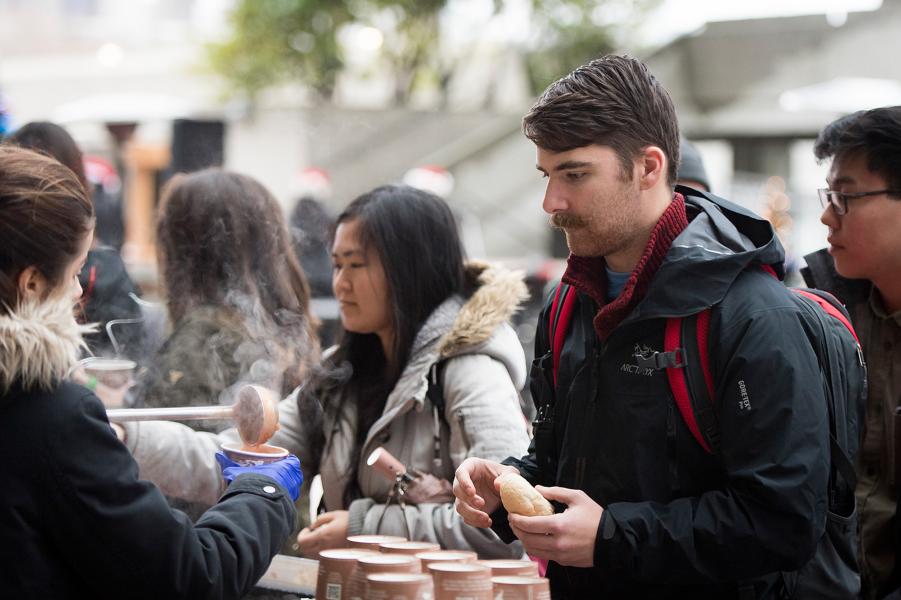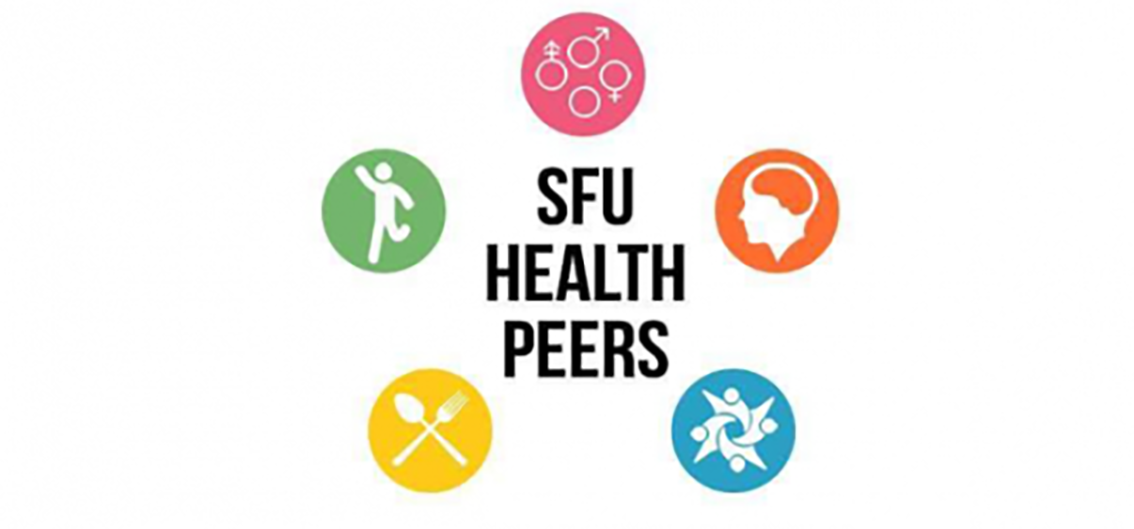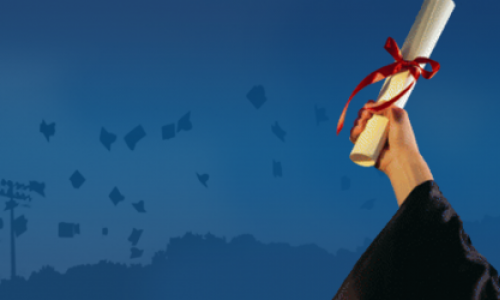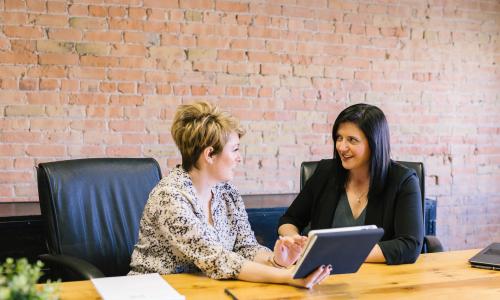
The four Health Peers featured in this article got involved with the program due to their desire to get more involved on campus in a meaningful way. Manal hopes to promote well-being among her fellow peers. Along with helping students on campus, Stephanie is enhancing her interpersonal skills and Jiayi is building her experience in planning outreaches and campaigns. Erwin is spreading awareness of the various resources that are available to SFU students.
Erwin, a fourth-year Criminology and FASS student, describes the SFU Peer Education program as “an opportunity for students who are committed to enhancing student well-being within the SFU community. Specifically, the program is organized to provide students with support in the areas of social well-being, mental health, academic success, and resource access. Unlike other programs, this means the program and its members seek to promote SFU resources and a healthier overall campus experience.” A third-year Health Science student, Stephanie, added that the program provides students with the opportunity to “practice teamwork, gain leadership experience, and give back to the SFU community.”
When asked more specifically about Peer Health Education, Manal, a Biomedical Physiology student who has been involved with the program for two years, explained that the program “aims to create a healthy campus environment and support the SFU community in achieving health and well-being.” She outlined that the Health Peers organize and hold various outreaches and workshops on topics including “sexual health, nutrition, positive body image, social connectedness, building resilience, active living, and responsible partying.” Jiayi, a Health Science student who has also been involved with the program for two years, added that the Health Peers work with SFU Health and Counselling Services.

Erwin has been involved with the Condom Crew and related sexual violence prevention events. He explained that there is “a lack of understanding with regards to what constitutes consent and preventative safe sex practices.” The goal of this type of outreach is to educate and spread awareness on topics such as contraceptives, STIs, consent, and much more.
Stephanie has also been involved with the Condom Crew. She explained that sexual health can be a difficult topic to discuss; however, she emphasized the importance of letting SFU students know that there are resources available that can help students make smart decisions. She uses humour to ease the awkwardness and tension that is commonly associated with sensitive topics such as sexual health.
With the goal of introducing Mindfulness to staff and students, Manal has been leading the Mindfulness Meditation drop-in sessions at the Vancouver and Surrey campuses. Along with providing staff and students with a place to de-stress, Manal provides resources that help staff and students build the capacity to practice Mindfulness on their own.
The “Ask a Health Peer” outreach has been led by Jiayi this semester. She explained that the purpose of this outreach is to provide general information about various services that are offered by the Health and Counseling department on campus.
Self-Development
The Health Peers were asked what they have learned and/or some skills that they have acquired beyond what they were hoping to learn, due to their involvement with Peer Health Education.
After being involved with Condom Crew and related sexual violence prevention events, Erwin has “become accustomed to working with like-minded and equally passionate team members.” Erwin also emphasized that he learned the importance of self-care in reducing stress, promoting self-compassion, and ensuring overall well-being.
Along with being motivated to work hard to excel in her classes, because she was surrounded by like-minded individuals in the Peer Health Education program, Manal was exposed to staff in the Health and Counselling Department and this has resulted in her considering various career opportunities in the health promotion field.
Jiayi became more efficient at planning and executing outreaches. She now relies on making to-do lists of tasks that need to be completed and checking off tasks as they are completed. She has also learned how to collaborate with other peers and work in a dynamic team setting.
As a result of working with a diverse group of peers, Stephanie has learned how to improve her communication skills in a team setting. She has also gained the ability to actively listen more effectively. She just recently became a Health Peer this year and she has profoundly enjoyed her involvement with the program. She is hoping to continue volunteering with the program until she graduates.
A special thank you to Erwin, Manal, Jiayi, and Stephanie for their time.
Beyond the Blog
-
Join the Health Peer Program team! Click here to find out how to apply.
-
Want to keep up with the Health Peers? Check out their Facebook, Instagram, and Twitter.
-
Visit Health and Counselling's website to learn more on their events and programs.














